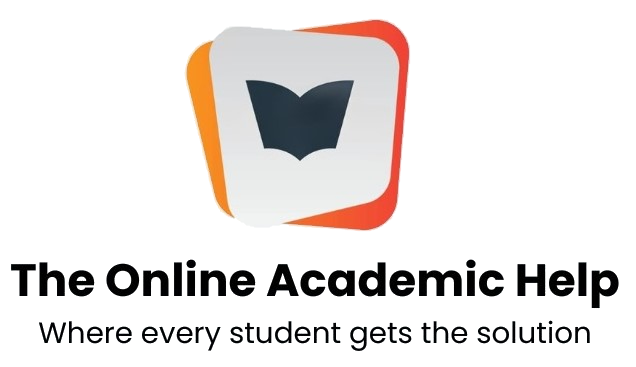Assessment Event 1 – Essay
Title: Supporting all Australian families in the 21st Century
Length: 2500 words
Due: 21 Mar
For this assessment you will need to:
Describe and analyse how to achieve a strength based, family centred approach in early childhood. Consideration:
Consideration:
• The effects of the pandemic on families.
• How to support families through a pandemic. See: Australian Institute of Health & Welfare. (2021, September 16). Childcare and early childhood education. Childcare and early childhood education – Australian Institute of Health and Welfare (aihw.gov.au)
• Supporting low-income families.
How is this reflected in practice?
Your assessment should show evidence that you have read widely on the topic beyond the supplied readings and texts. Your assessment must use correct referencing, in APA style. The criteria for marking this assessment are given below
Prescribed text
Camberis, A.L., & McMahon, C. (2017). Challenging contexts for contemporary Australian families. In R. Grace, K. Hodge, & C. McMahon (Eds.), Children, families and communities (5th. ed.) (pp. 146-155). Oxford University Press.
Grace, R., Hayes, A.K., & Wise, S., (2017). Child development in context. In R. Grace, K. Hodge, & C. McMahon (Eds.), Children, families and communities (5th ed.) (pp. 3-25). Oxford University Press.
Angel, M. (2019). Supporting the wellbeing of parents and carers. Early Childhood Australia.
Camberis, A.L., & McMahon, C. (2017). Challenging contexts for contemporary Australian families. In R. Grace, K. Hodge, & C. McMahon (Eds.), Children, families and communities (5th ed.) (pp. 144-146). Oxford University Press.
McMahon, C., & Camberis, A. L. (2017). Family as the primary context of children’s development. In R. Grace, K. Hodge, & C. McMahon (Eds.), Children, families and communities (5th ed.) (pp. 119-143). Oxford University Press.
Readings
Australian Bureau of Statistics. (n.d.). http://www.abs.gov.au
Australian Children’s Education and Care Quality Authority (n.d.). Quality area 6: Collaborative partnerships with families and communities. https://www.acecqa.gov.au/nqf/national-quality-standard/quality-area-6-collaborative-partnership-with-families-and-communities
Australian Early Development Census (AEDC). (2019). Early childhood. https://www.aedc.gov.au/early-childhood
Australian Institute of Family Studies. (2020). Population and households: Population growth. https://aifs.gov.au/facts-and-figures/population-and-households
Brennan, C., & Packard, M. (2021, March 29). Notes to home: Supporting preservice early childhood education teachers in building authentic family relationships. Journal of Early Childhood Teacher Education. https://doi.org/10.1080/10901027.2021.1902436
Fenech, M., & Skattebol, J. (2021). Supporting the inclusion of low-income families in early childhood education: An exploration of approaches through a social justice lens. International Journal of Inclusive Education, 25(9), 1042-1060. https://doi.org/10.1080/13603116.2019.1597929
Jalongo, M. (2021). The effects of COVID‑19 on early childhood education and care: Research and resources for children, families, teachers, and teacher educators. Early Childhood Education Journal, 49(5), 763–774. https://doi.org/10.1007/s10643-021-01208-y
Peterson, E. R., Schmidt, J., Reese, E., Lee, A. C., Carr, P. A., Grant, C. C. & Morton, S. M. B. (2014). ‘I expect my baby to grow up to be a responsible and caring citizen’: What are expectant parents’ hopes, dreams and expectations for their unborn children? Family Matters, (94), 35-44. https://aifs.gov.au/publications/family-matters/issue-94/i-expect-my-baby-grow-be-responsible-and-caring-citizen
Sonnenschein, S., & Stites, M. (2021). The effects of COVID-19 on young children’s and their parents’ activities at home. Early Education and Development, 32(6), 789-793. https://doi.org/10.1080/10409289.2021.1953311
Tayler, C., Cloney, D., & Niklas, F. (2015). A bird in the hand: Understanding the trajectories of development of young children and the need for action to improve outcomes. Australasian Journal of Early Childhood, 40(3), 51-60.http://doi.org/10.1177/183693911504000308
Diamond, A., & Whitington, V. (2015). Studying early brain development: Educators’ reports about their learning and its applications to early childhood policies and practices. Australasian Journal of Early Childhood, 40(3), 11-19. https://doi.org/10.1177/183693911504000303
GenoPro. (n.d.). Family systems theory. https://www.genopro.com/genogram/family-systems-theory/
Johnson, B. E., & Ray, W. (2016). Family systems theory. In S. Smith (Ed.), The Wiley Blackwell encyclopedia of family studies (pp. 782-787).
https://doi.org/ 10.1002/9781119085621.wbefs130
The Bowen Center for the Study of the Family. (n.d.). Eight concepts. http://thebowencenter.org/theory/eight-concepts/
Winter, P., Luddy, S., & Daley, M. (2010). Engaging families in the early childhood development story: A national project conducted on behalf of the Ministerial Council for Education, Early Childhood Development and Youth Affairs, Final project report of Stage 1. http://www.curriculum.edu.au/verve/_resources/ECD_Story-Final_project_report_of_Stage_1.pdf
Australian Institute of Family Studies. (2010, July 6). The modern family: Look how we’ve changed. https://aifs.gov.au/media-releases/modern-family-look-how-weve-changed
Cultural Atlas. (n.d.). Australian Culture: Family. https://culturalatlas.sbs.com.au/australian-culture/australian-culture-family
Relationships Australia. (2018, August 1). June 2018: Families and how to define them in modern society. https://www.relationships.org.au/what-we-do/research/online-survey/june-2018-families-and-how-to-define-them-in-modern-society
